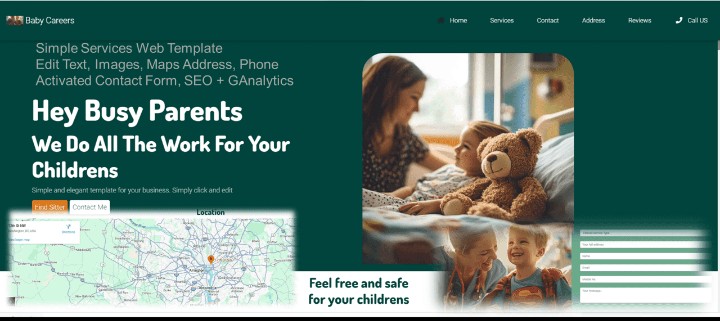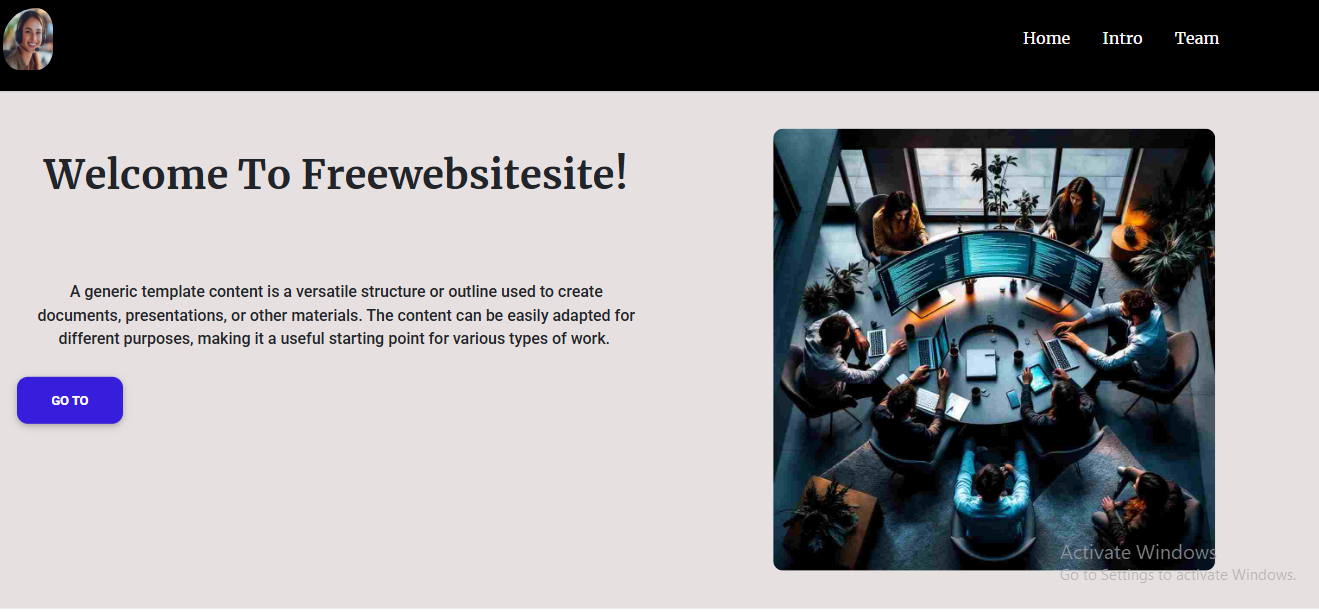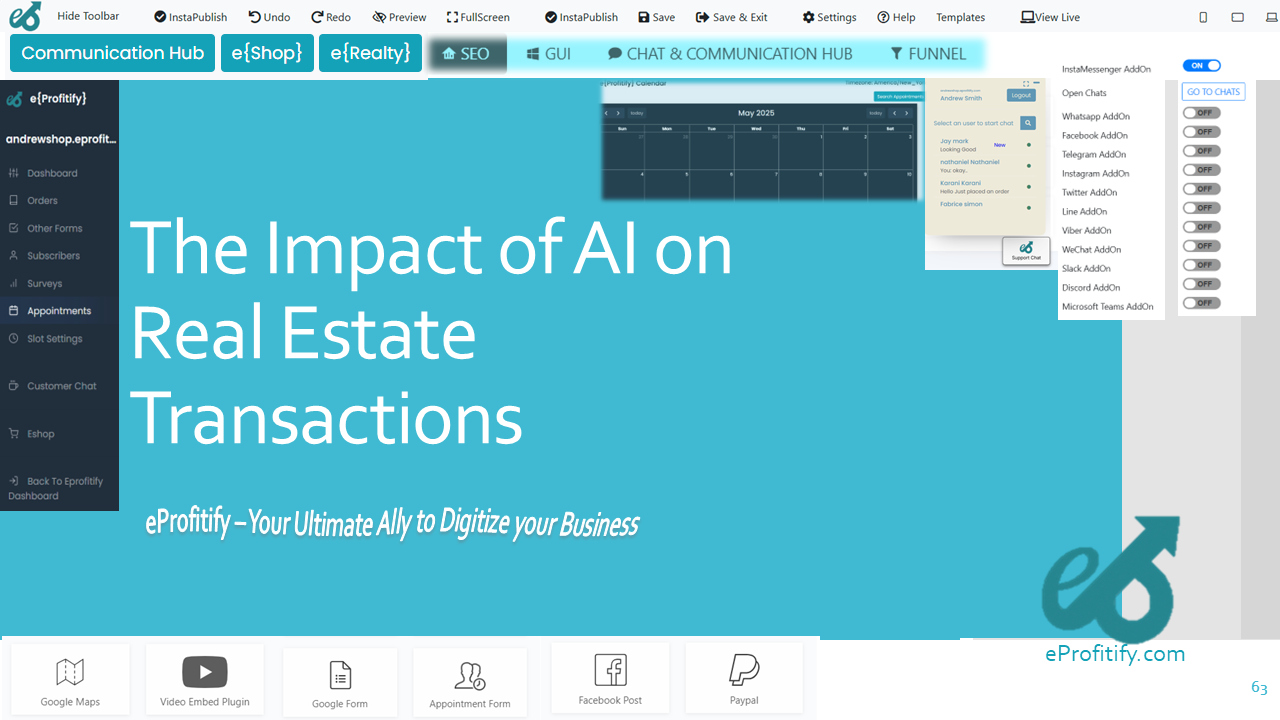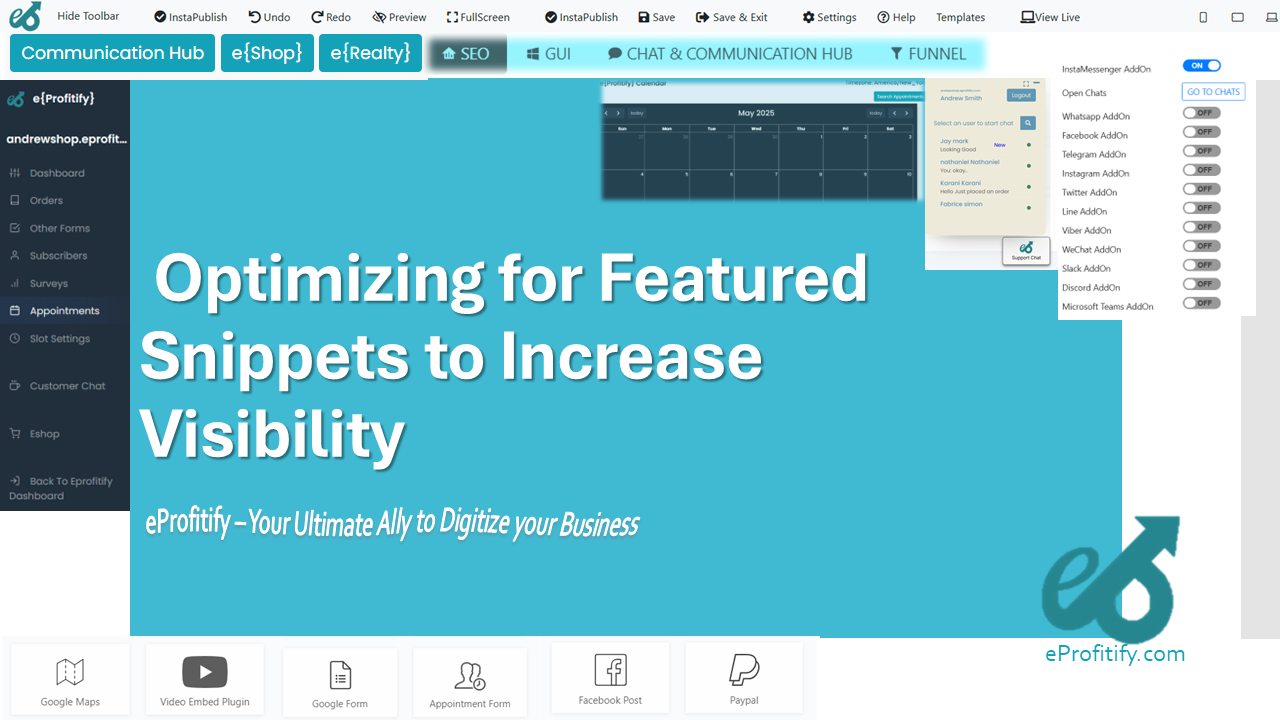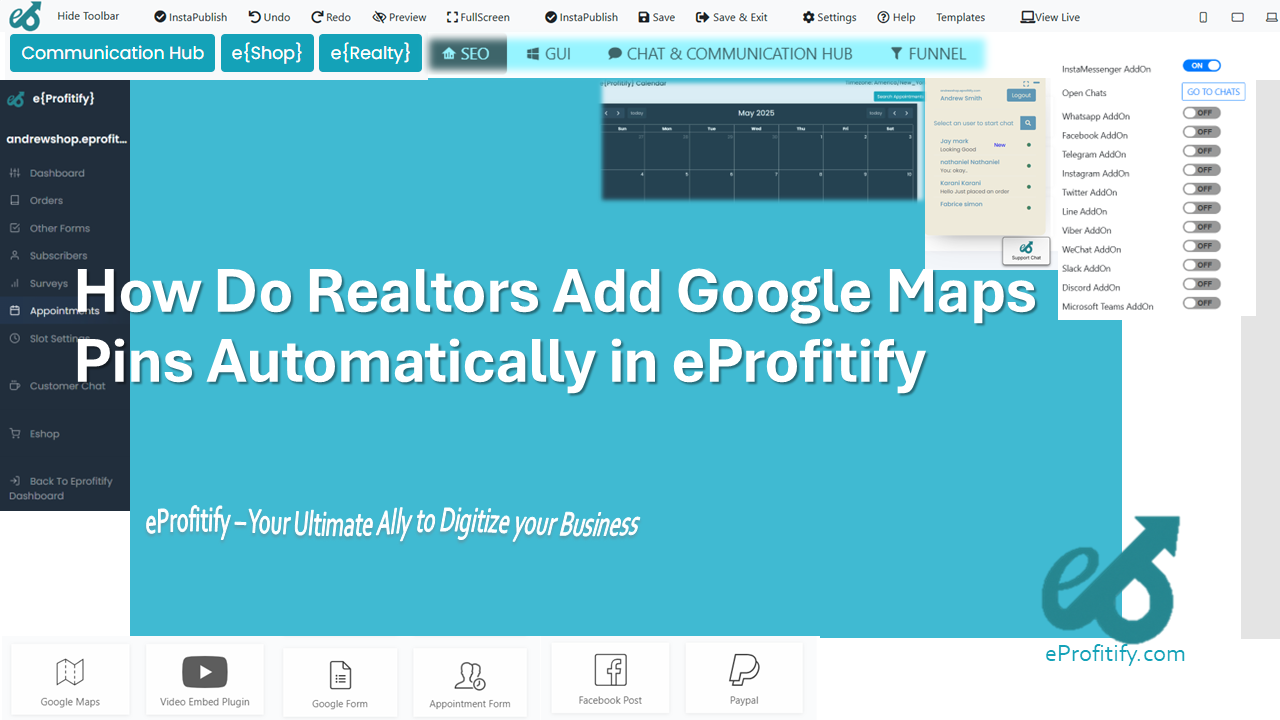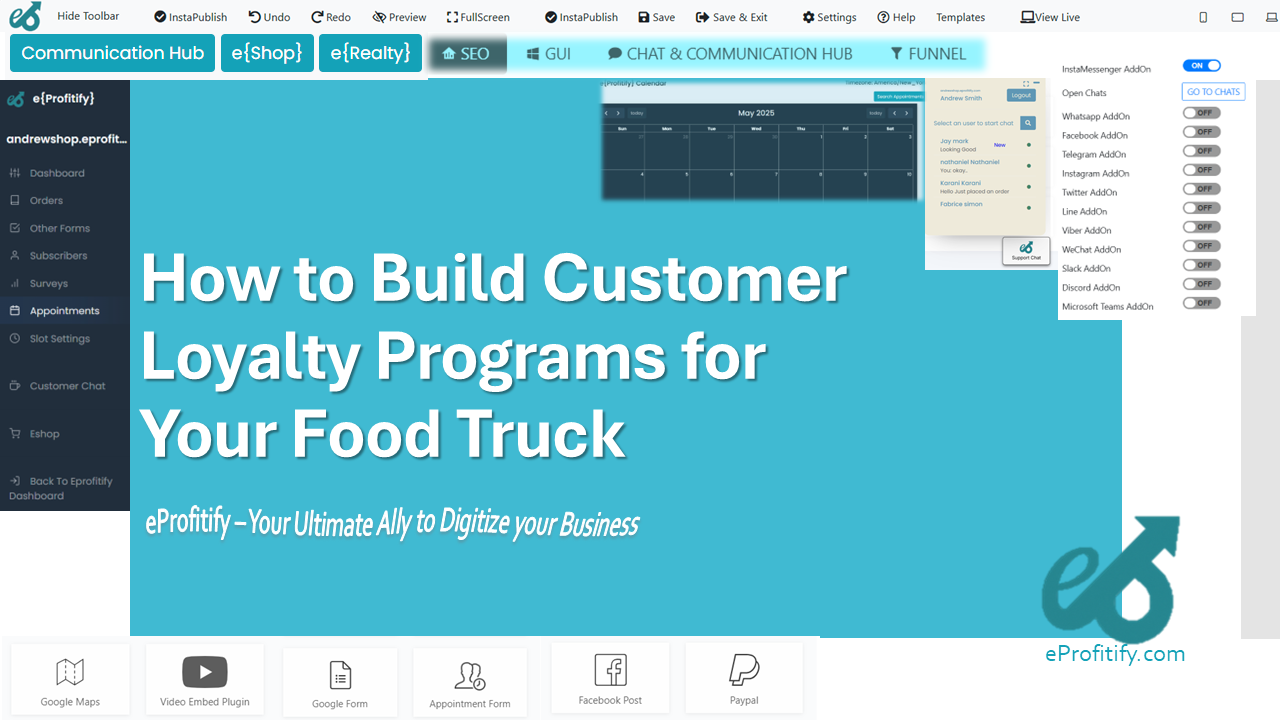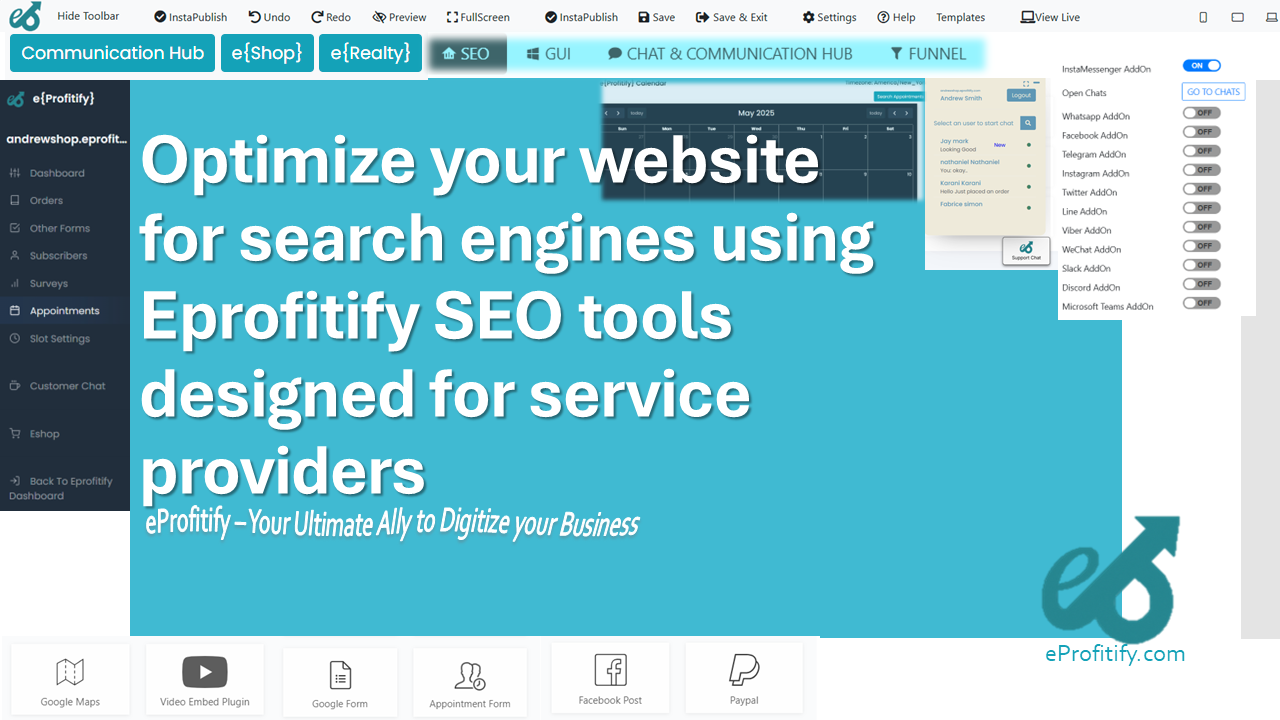How to Use Your Industry in Your Business Name
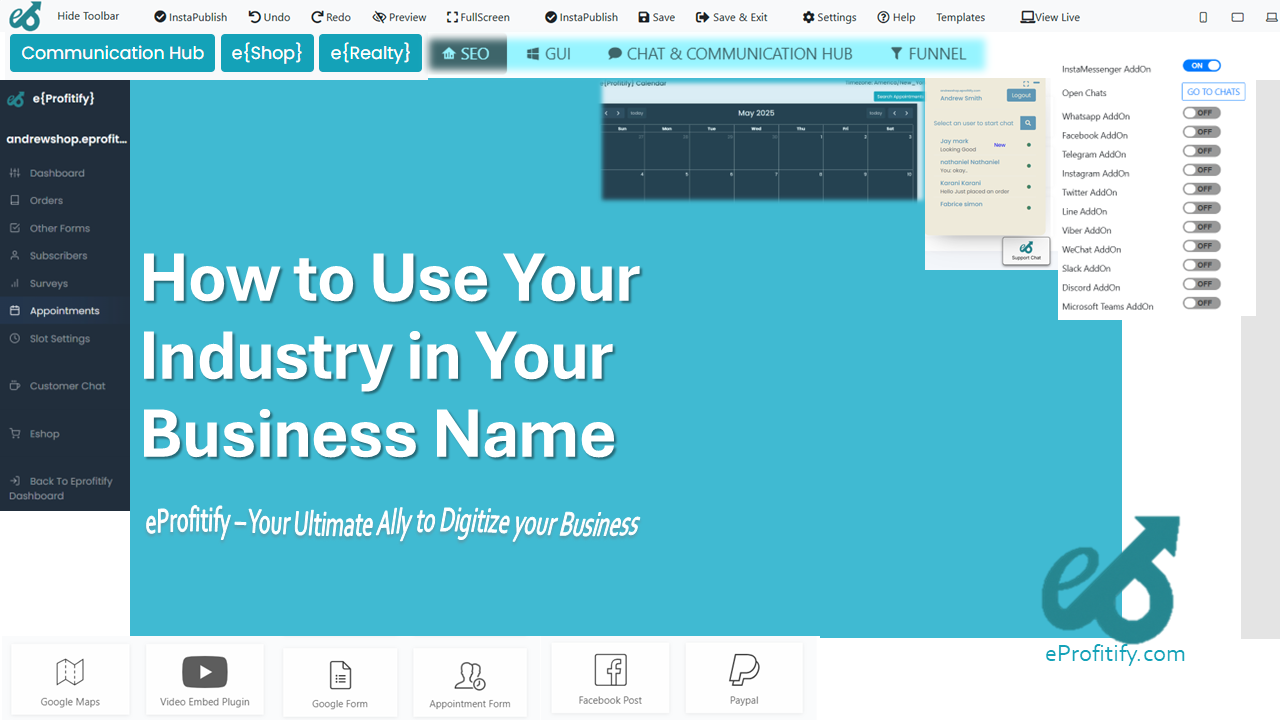
Schedule a LIVE Zoom call with an eProfitify Expert.
How to Use Your Industry in Your Business Name
A business name is often the first point of contact between a company and its audience. It shapes perceptions, drives brand recognition, and can even influence purchasing decisions. Incorporating your industry into your business name offers strategic advantages, from improving SEO to building trust. This article explores actionable strategies for leveraging industry relevance in your business name, supported by statistics, and highlights how tools like Eprofitify streamline operations once your brand gains traction.
1. Enhance Clarity and Immediate Recognition
A name that reflects your industry eliminates ambiguity, ensuring customers instantly understand your offerings. For example, "QuickFix Plumbing" instantly communicates expertise in plumbing services. According to a 2023 survey by Clutch, 77% of consumers prefer business names that clearly indicate the products or services provided. This clarity reduces marketing friction, as 63% of buyers are more likely to engage with brands that align with their immediate needs (Clutch, 2023).
Actionable Tip:
Incorporate industry-specific keywords (e.g., "Tech," "Med," "Auto") or suffixes (e.g., "Solutions," "Hub"). Avoid vague terms like "InnovateX," which may confuse audiences.
2. Boost SEO Performance
Including industry keywords in your business name can significantly improve search engine visibility. A 2022 SEMrush study found that websites with industry-relevant keywords in their domain names experienced a 30% higher click-through rate (CTR) in organic search results. For instance, "BloomFlorals.com" is more likely to rank for "floral arrangements" than "BlissfulCreations.com."
Statistic Alert:
Businesses using industry-specific terms in their names saw a 45% increase in organic traffic over six months (HubSpot, 2021).
Actionable Tip:
Use tools like Google Keyword Planner to identify high-traffic keywords. Balance creativity with keyword relevance to avoid generic names.
3. Strengthen Brand Identity and Trust
Industry-aligned names signal professionalism and reliability. A 2023 Edelman Trust Barometer report revealed that 68% of consumers trust businesses whose names transparently reflect their niche. For example, "LegalGuard Attorneys" conveys authority in law, whereas "Alpha Enterprises" lacks specificity.
Actionable Tip:
Combine your core service with a geographic or unique modifier (e.g., "DenverDentalCare," "EcoCleanLaundry").
4. Stand Out in a Crowded Market
While industry relevance is critical, differentiation ensures memorability. The U.S. Census Bureau reports 5.9 million new business applications in 2023, highlighting the need for uniqueness. "StellarPetGrooming" stands out more than "CityPetGrooming" by adding a distinct adjective.
Statistic Alert:
77% of marketers agree that a unique business name improves customer recall (Forbes, 2022).
Actionable Tip:
Use alliteration, metaphors, or uncommon words (e.g., "ZestyBurger" for a food venture) while retaining industry ties.
5. Future-Proof Your Brand
While specificity aids recognition, overly narrow names can limit growth. A 2021 Nielsen study found 22% of businesses rebranded within five years due to pivots. "MidwestVideoProduction" may hinder expansion into photography services.
Actionable Tip:
Opt for adaptable names like "PixelCreations Media" instead of "WeddingVideographyPros."
Integrating Eprofitify: Streamline Operations Post-Launch
Once your industry-aligned business name attracts customers, tools like Eprofitify simplify managing growth. As a leading website publishing and management platform, Eprofitify offers:
- Instant Messaging: Engage clients in real-time, reducing response time by 60% (Eprofitify Case Study, 2023).
- Appointment Management: Automate scheduling, cutting no-shows by 35% with reminders.
- Ecommerce Integration: Launch online stores seamlessly, with users reporting a 50% faster setup than competitors.
- CRM Tools: Track customer interactions, boosting retention by 40% through personalized follow-ups.
Statistic Alert:
Businesses using Eprofitify’s all-in-one toolkit saw a 70% increase in operational efficiency within three months (Eprofitify, 2023).
Conclusion
An industry-specific business name clarifies your niche, builds credibility, and fuels discoverability. Balancing creativity with strategic keyword use ensures longevity in competitive markets. After establishing your brand, platforms like Eprofitify empower you to scale efficiently, leveraging tools that automate customer engagement, sales, and analytics. By aligning your name with your industry’s heartbeat and pairing it with robust management solutions, your business is poised for sustained success.
References
- Clutch (2023), SEMrush (2022), HubSpot (2021), Edelman Trust Barometer (2023), U.S. Census Bureau (2023), Nielsen (2021), Eprofitify (2023).
